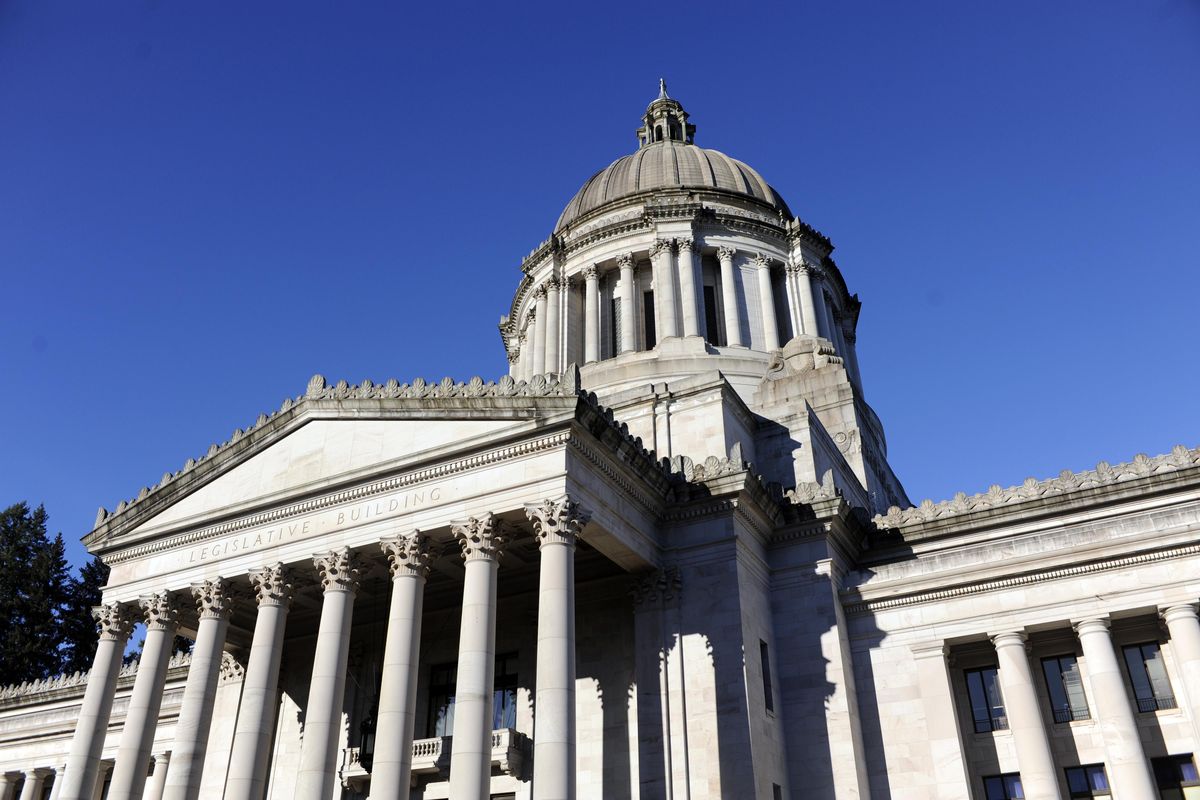GOP proposes major changes in the way Washington taxes and spends on public schools

Washington state Senate Republicans unveiled a major overhaul of the way the state collects taxes and spends money on public schools with what could be a generational change in Washington’s property tax system.
The GOP plan would reduce property taxes for many residents in 2019 by eliminating the current maintenance and operations levy for school districts and instituting a new statewide property tax levy. School districts would get a minimum of $12,500 per student under a new and complicated formula that takes into account needs like special education, English as a second language and homelessness.
Senate Ways and Means Committee Chairman John Braun, R-Centralia, hailed it as “an enormous change in the way we tax our citizens.”
Senate Democrats agreed that it was a significant and perhaps once-in-a-generation change in the way the state collects taxes for schools, but they weren’t ready to sign on to it yet.
The Washington Education Association, the state teachers union, denounced the plan as straight from the playbook of President Donald Trump and his education secretary nominee, Betsy DeVos.
“It’s really just a Trojan horse for imposing bad policies that blame and attack teachers rather than truly focusing on fully funding the education our students need to be successful, like smaller class sizes in every grade,” Rich Wood, a WEA spokesman, said in an email.
If what Senate Republicans are calling the One Washington Education Equality Act were to pass the Legislature in its current form – something difficult to predict on the day such complicated legislation on a controversial topic is introduced – voters would be asked to approve it in November.
Among the aspects of the proposal:
Schools would get a basic amount of $10,000 per student, with increases of between $2,000 and $5,000 per student in poverty zones; $7,500 for special-needs students; $1,500 for homeless students; and $1,000 for students whose first language isn’t English. Districts would be guaranteed a minimum of $12,500 per student, with extra funding promised to small school districts.
Salaries for beginning teachers would go up from about $35,700 to $45,000 per year, and the top 5 percent of teachers would get bonuses ranging from $25,000 to $50,000. All money for school salaries would come from money the state collects in taxes, a major requirement of the state Supreme Court in a ruling the Legislature is under a deadline to satisfy.
School staff in areas with high property costs could receive housing allowances in addition to their salaries.
Individual school districts would continue to negotiate salaries with their staff and would be allowed to spend up to 80 percent of the per-student money from the state on salaries. They would not be able to supplement salaries with local levy money.
Initiative 1351, which voters passed in 2014 to reduce class sizes throughout the K-12 system, would be repealed. Legislators have been focusing on smaller class sizes for kindergarten through third grade, where they say research shows fewer students per teacher have the greatest effect.
Taxpayers would see a major shift in their property taxes, and Republicans said about 80 percent of the state would eventually see a drop in 2019 as a state levy replaces the current M&O levies by school districts. But in 2018, as that change is phased in, all property owners would pay an extra 45 cents per $1,000 for the new “local effort levy,” on top of their existing local school levy. In 2019, the widely varying local school district levies would go away, and the statewide local effort levy would rise to $1.80 per $1,000.
In 2020, school districts could ask voters to approve local levies for expenses that are not part of “basic education.”
School employees would be prohibited from striking. A teacher who is deemed detrimental to student academic performance and fails to show enough improvement over a five-year period of training and mentorship could be fired.
The scheduled reduction in the school districts’ levy authority, sometimes known as the “levy cliff,” would be delayed for a year.
Some Democrats called the plan a positive step in the ongoing negotiations to find more money and improve public schools, although they tempered their comments by adding they hadn’t seen all the details.
“There are certainly some concerns about the specifics of their plan, but it is helpful that the Republicans now clearly recognize that new revenue is needed to solve this challenge,” said Sen. Andy Billig, D-Spokane. He added, “it is time to start negotiating.”
Among his concerns, Billig said, was the complete elimination in 2019 of local maintenance and operations levies, adding, “I believe in local control.”
Sen. Kevin Ranker, D-Orcas Island, said he was concerned that some details of the plan changed between his conversation with Republican leaders on Thursday evening and the Friday morning announcement. On Thursday, he was told the state levy would be $2 per $1,000, not $1.80.
“This is a very difficult bill to swallow if your property taxes are going up,” Ranker said.
Republicans were reluctant to call their change in state and local property tax levies a “levy swap,” which has been a controversial term because it means some taxpayers gain and others lose. Under the Senate GOP proposal, the overall property taxes paid by property owners in most Spokane-area school districts would go down in 2019 once that change is fully implemented.
But they would go up in Seattle, Bellevue and Mercer Island, which all raise significantly more money with a lower school district levy because property values are so high.
Braun, of the Ways and Means Committee, said he will hold a hearing on the proposal on Monday afternoon.